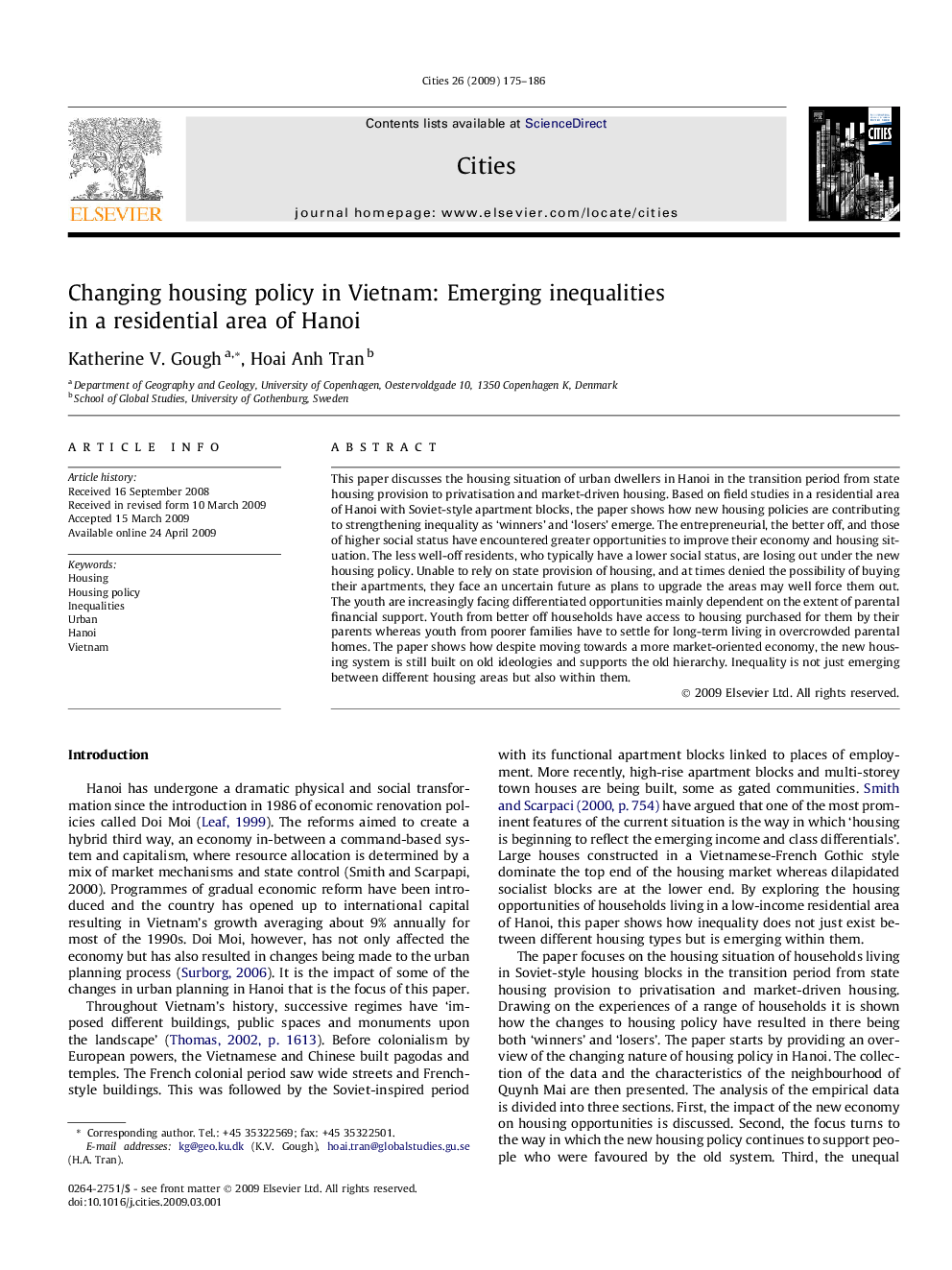| Article ID | Journal | Published Year | Pages | File Type |
|---|---|---|---|---|
| 1008869 | Cities | 2009 | 12 Pages |
This paper discusses the housing situation of urban dwellers in Hanoi in the transition period from state housing provision to privatisation and market-driven housing. Based on field studies in a residential area of Hanoi with Soviet-style apartment blocks, the paper shows how new housing policies are contributing to strengthening inequality as ‘winners’ and ‘losers’ emerge. The entrepreneurial, the better off, and those of higher social status have encountered greater opportunities to improve their economy and housing situation. The less well-off residents, who typically have a lower social status, are losing out under the new housing policy. Unable to rely on state provision of housing, and at times denied the possibility of buying their apartments, they face an uncertain future as plans to upgrade the areas may well force them out. The youth are increasingly facing differentiated opportunities mainly dependent on the extent of parental financial support. Youth from better off households have access to housing purchased for them by their parents whereas youth from poorer families have to settle for long-term living in overcrowded parental homes. The paper shows how despite moving towards a more market-oriented economy, the new housing system is still built on old ideologies and supports the old hierarchy. Inequality is not just emerging between different housing areas but also within them.
